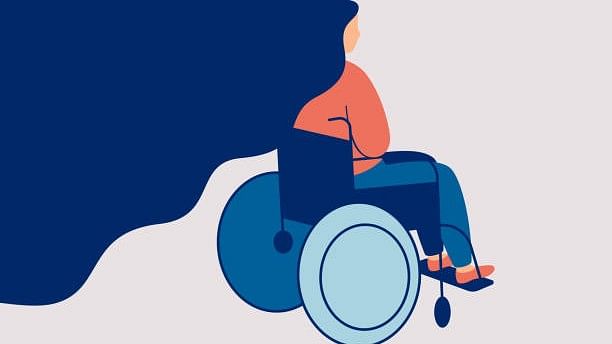
Image for representation.
Credit: iStock Photo
In his story titled Naya Samvidhaan, Sadat Hasan Manto conveyed the inherent limitations of legal changes in bringing societal transformations. Despite the enactment of right-based laws regarding persons with disabilities in India, it remains an unfortunate reality that ableism is still deeply entrenched in our society.
Deep-seated prejudices, discrimination and stigma associated with disability have impeded this process of social transformation because of which equal respect remains elusive. Language is a very important tool in this process. The use of appropriate language can either facilitate the process or continue the ableist narrative, effectively impeding the process of fostering inclusion and respect.
Recently, the Supreme Court of India released a ‘Handbook Concerning Persons with Disabilities’, offering guidance on stereotypes related to disability and the need and manner of employing respectful language. The handbook aims to address a troubling social pattern in India of using derogatory language for persons with disabilities.
A few months ago, three former cricketers posted a video mocking physical exhaustion. Despite the ‘alleged’ intent of humour, the video trivialised persons with locomotor disabilities in its implications. In the past, platforms like TikTok have faced backlash when videos mocking persons with disabilities were shared.
Indian political leaders, including the current Prime Minister and the Leader of the Opposition, have repeatedly used derogatory terms involving persons with disabilities to undermine their opponents. To discourage such incidents, the Election Commission of India had to come out with guidelines to “nudge political parties towards respectful discourse for persons with disabilities”. Such a political climate is reflective of the troubling social tendency that trivialises the mocking of persons with disabilities.
It is pertinent to note that the Indian state continues to use ‘Divyangjan’, literally meaning ‘persons with divine bodies’, as an official term to refer to persons with disabilities. Disability rights organisations and activists have expressed serious anguish over the usage of this term because of its dehumanising context and patronising tone. An ‘official’ mark of identity that has come to be perceived as an insult has continued to be in use despite the concerns expressed by the Committee on the Rights of Persons with Disabilities (CRPD), referring to the same as ‘derogatory’.
The pervasiveness of such language in our public discourse reveals a recurring social pattern of dismissive attitudes towards persons with disabilities. These incidents point towards a larger and more persistent problem — a climate of social and political apathy towards the use of derogatory language against persons with disabilities. From casual mockery to the use of derogatory language, the trivialisation of disability in Indian society remains widespread.
Terms like “langda”, “retard”, “behra” and “andha” have shifted from medical terms to slurs, reinforcing negative stereotypes about disability. Such insults perpetuate ableism, causing psychological harm and broader exclusion. The recurring use of this language reflects systemic prejudice and dismissive attitudes toward persons with disabilities, highlighting the need for more robust legal enforcement and societal change.
While the Rights of Persons with Disabilities Act 2016 penalises offensive speech, it only includes speech made with an offensive intent. This focus on intent means that insults made with the awareness of their potential derogatory impact — or those made negligently or recklessly — are not penalised under this provision. Consequently, the burden of proof lies heavily on the prosecution to demonstrate this higher standard of intent. Ignorance, masked as humour, often allows individuals to evade accountability, making it challenging for the penalisation to act as an effective deterrent.
The Supreme Court’s handbook emphasises the importance of using sensitive and respectful language when referring to persons with disabilities, urging judges and professionals to avoid derogatory or condescending terms like “crippled” or “differently-abled”. It promotes a people-first approach (eg., “persons with a disability”) but acknowledges that some may prefer identity-first language. This shift may seem subtle but has a profound impact, as words shape how we perceive and treat those with disabilities.
Language shapes societal perceptions, and by choosing respectful and inclusive terms, we pave the way for a more equitable society. The release of the Supreme Court’s handbook is a crucial step in this direction, underscoring the need for collective responsibility in fostering an inclusive future for all individuals, regardless of their abilities. As we move away from stigmatising language, we can create a world where everyone belongs, and language becomes a bridge to understanding, acceptance and respect.
(Meghna Sharma is an assistant professor and Sandhyashree Karanth is a BA LLB (Hons) student at the School of Law, RV University)